
2017 was a solid year for community-driven design that wanted to make a positive impact. From flat-pack emergency shelters to a kindergarten center designed to create a sense of inclusivity, many of these projects won big in some of architecture's most renowned award competitions, such as the Buckminster Fuller Challenge, the RIBA Stirling Prize, and the Moriyama RAIC Prize. With other projects like Jenny Sabin's “Lumen” installation, the Fairy Tales Architecture Competition winning entries, and even Carbuncle Cup recipient Nova Victoria, they all pose as reminders of the importance of constantly working toward innovation in the field.
Bustler rounded up a list of our top award-winning projects of the year. Check 'em out below.
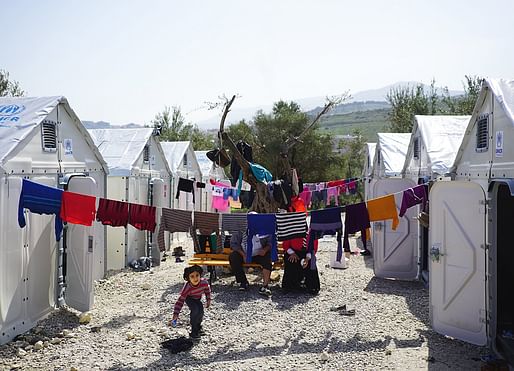
Beazley Design of the Year awarded to “Better Shelter”, flat-packed shelters for refugees
Starting with over 70 nominees, Better Shelter was crowned 2017 Beazley Design of the Year. The social enterprise designs innovative emergency and temporary shelters for people displaced by natural disasters and conflicts.

The winners of the 2017 Fairy Tales Architecture Competition
The line between fictional and non-fictional is blurred in the yearly Fairy Tales Architecture Competition, which brings up evergreen topics and timely issues that constantly press on the minds of architects. 2017 reeled in a competitive pool of submissions. Revisit the top-winning stories.
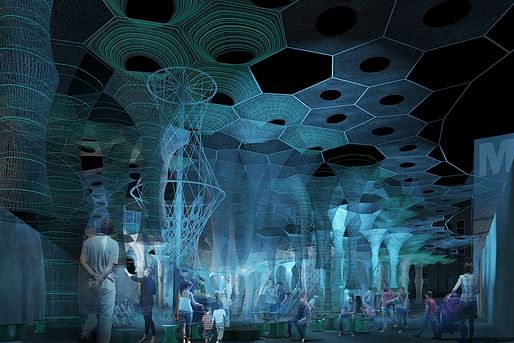
Jenny Sabin to light up MoMA PS1 with 'Lumen'
Jenny Sabin's “Lumen” was the winning proposal for the 2017 MoMA PS1 anticipated Young Architects' Program competition, which gives emerging architecture firms the chance to design a site-specific temporary installation in MoMA PS1's courtyard during the summer. Lumen was a canopy of responsive tubular structures made from lightweight knitted fabric and photoluminescent textiles.
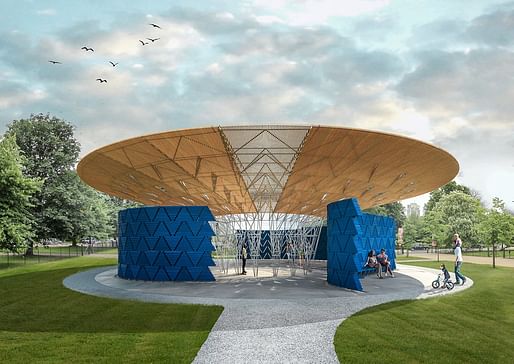
Francis Kéré to design 2017 Serpentine Pavilion
Diébédo Francis Kéré of Berlin-based Kéré Architecture joined the lucky list of architects to design this year's Serpentine Pavilion. Kéré's tree-like pavilion is based on the tree that serves as a central gathering point in his hometown of Gando, Burkino Faso. The largely wooden pavilion featured an expansive roof supported by a central steel framework, allowing air circulation and shelter against the London rain and summer heat.
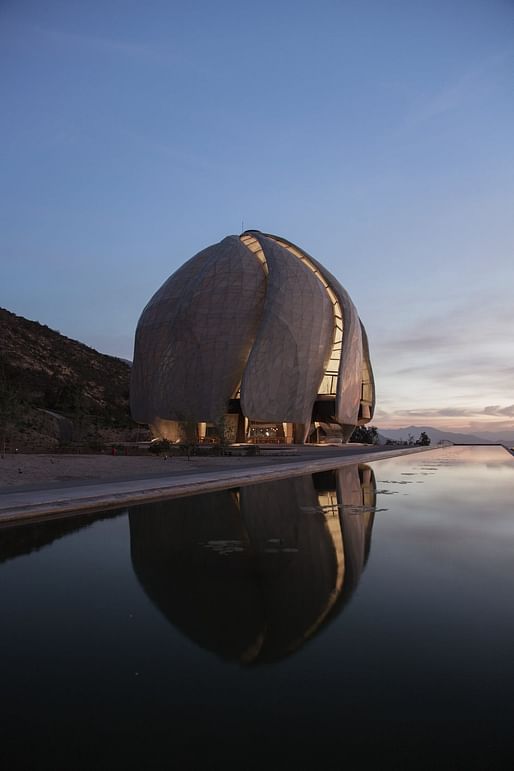
The Bahá’í Temple of South America by Hariri Pontarini Architects
Designed by Toronto-based Hariri Pontarini Architects, the Bahá’í Temple of South America won numerous awards in this year alone, including the 2017 RAIC Innovation in Architecture Award, the Award for Structural Artistry in the 2017 Structural Awards, the American Architecture Prize, and the 2017 AIA TAP Innovation Awards. The universality aspect of the Bahá’í faith was essential to the temple's design, which has no reference to specific religious iconography and includes nine entrances to “symbolically welcome people from all directions of the earth”.
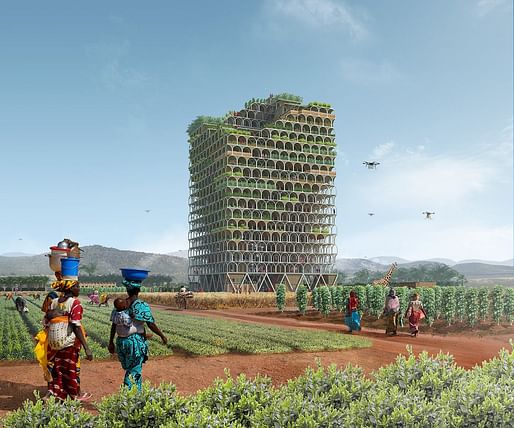
The 2017 eVolo Skyscraper Competition winners
The sky is indeed the limit for this competition, which gives participants complete freedom in interpreting how a skyscraper can be designed. Out of 444 submissions in the 2017 edition, the jury chose three prize winners and 22 honorable mentions.
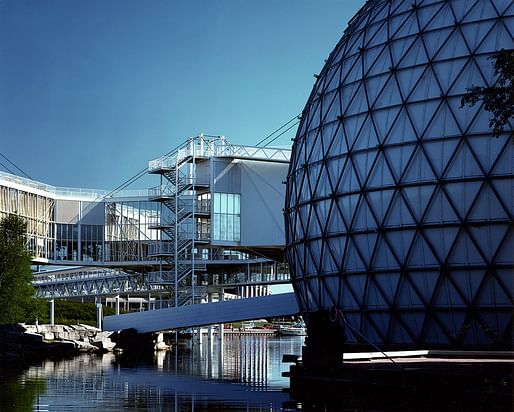
Toronto's CN Tower & Ontario Place Cinesphere and Pods win 2017 Prix du XXe siècle
The Royal Architectural Institute of Canada + the National Trust for Canada presented the honorable 2017 Prix du XXe siècle to two of the country's architectural icons: Toronto's CN Tower and the Ontario Place Cinesphere and Pods. “For the past four decades, these iconic places have captured the imagination and provided joy to their visitors,” said RAIC President Ewa Bieniecka in a statement.
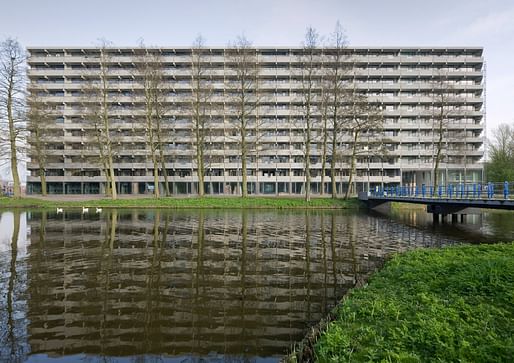
2017 Mies van der Rohe Award bestowed to DeFlatKleiburg housing megablock in Amsterdam
Completed in 2016, DeFlatKleiburg by NL Architects and XVW architectuur is the first renovation project of an existing building to receive the main prize, instead of a completely new construction. The colossal housing megablock is 11 stories tall and 400 meters long, and comprises 500 customizable apartments.
Nova Victoria wins Carbuncle Cup 2017 for Britain's ugliest building of the year
Poor Nova Victoria. The overwhelming mixed-use building in London's Victoria district was deemed the winner of BD Magazine's 2017 Carbuncle Cup for Britain's ugliest building of the year. The building was supposed to be a daring gamechanger, with its statement-red “prows” that slice up the monolithic nature of the structure. Evidently, the judging panel bluntly disagreed.
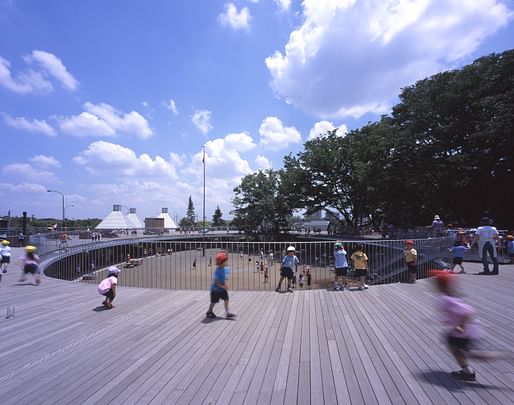
Designed by Tokyo-based Tezuka Architects, Fuji Kindergarten won the 2017 Moriyama RAIC Prize, which celebrates a single architectural project that is “transformative within its social context” and deemed exemplary of positively impactful and inclusive design. The one-story, oval-shaped building has an enrollment of 600 children ages 2-6 — making it one of Japan's largest kindergartens.

Bhungroo in Gujarat, India wins 2017 Buckminster Fuller Challenge
This year's $100,000 Buckminster Fuller Challenge prize went to the Bhungroo initiative. Bhungroo (meaning "straw" or "hollow pipe" in Gujarati) is a low-tech irrigation technology that provides multiple benefits for local farmers, including: boosting crop yields and food security, raising rural income, improving soil fertility, helping combat the effects of climate change, and enhancing the social status and well-being of women.
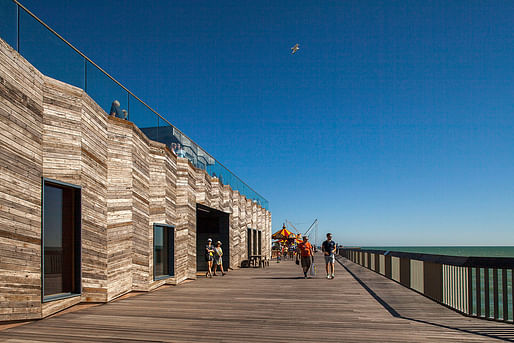
Hastings Pier by drMM crowned as 2017 RIBA Stirling Prize winner
Overlooking the English Channel on the East Sussex coast, the historic Hastings Pier was crowned the RIBA Stirling Prize winner for the UK's best new building. For many years, Hastings Pier was a popular leisure pier known for musical acts. But after falling into years of neglect, it closed in 2008 following storm damage and was then destroyed by a fire in 2010. London-based practice drMM then won the competition to rebuild the pier.
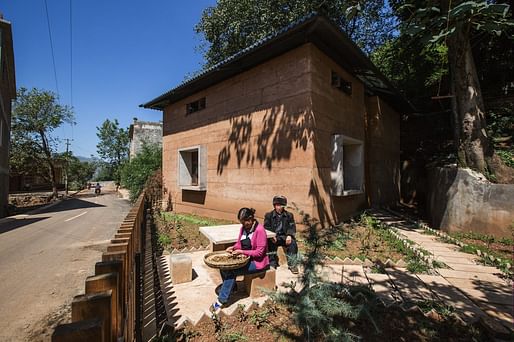
The Chinese University of Hong Kong's Post-earthquake reconstruction/demonstration project of Guangming Village in Zhaotong beat tough competition to win World Building of the Year at this year's World Architecture Festival in Berlin.
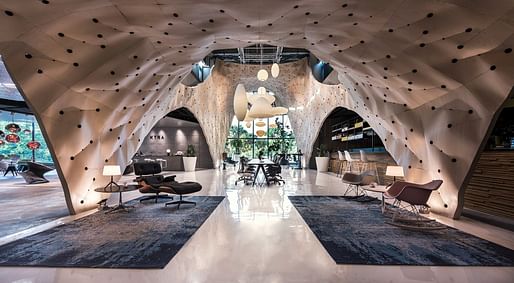
Fabricwood by Produce.Workshop wins World Interior of the Year 2017
Produce.Workshop designed Fabricwood as an installation for The Herman Miller shop in Singapore. "This was a clever innovative installation with resonance well beyond the brief and specific location of the project," the INSIDE World Festival of Interiors jury commented.
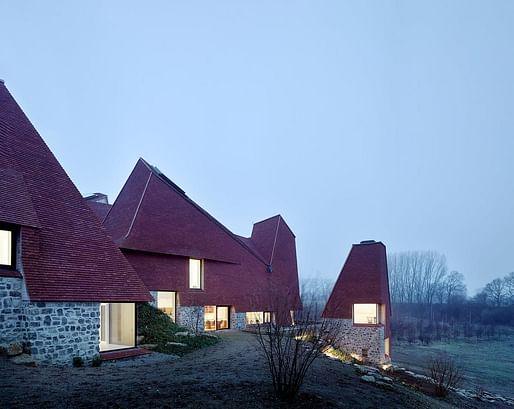
James Macdonald Wright and Niall Maxwell designed this reimagined traditional English country house for a large family spanning three generations. Inspired by Kentish oast houses and the Arts and Crafts movement, the project features four individual homes with interlocking roofs.

Kinderspace: Architecture for Children's Development #2
Register by Thu, Jan 16, 2025
Submit by Mon, Jun 16, 2025

Ceramics of Italy Tile Competition
Register/Submit by Fri, Feb 14, 2025
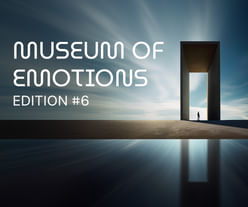
Museum of Emotions / Edition #6
Register by Thu, Jan 23, 2025
Submit by Tue, Apr 29, 2025
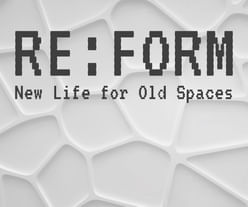
Re:Form – New Life for Old Spaces
Register by Wed, Jan 22, 2025
Submit by Tue, Sep 2, 2025
No Comments